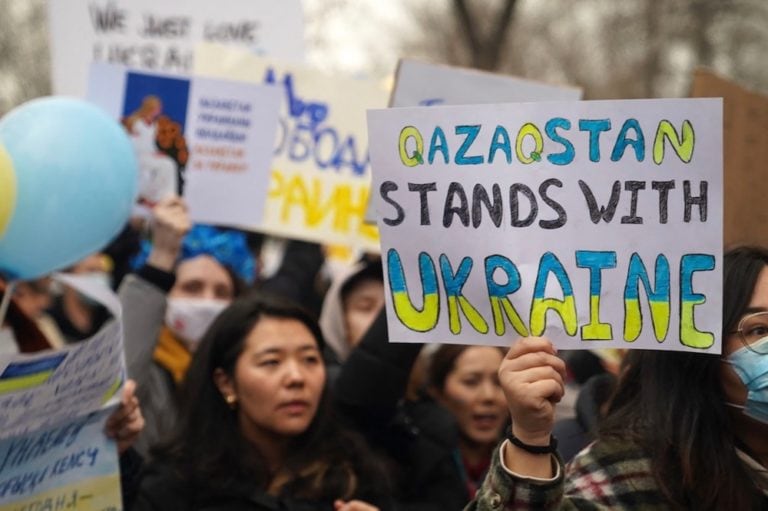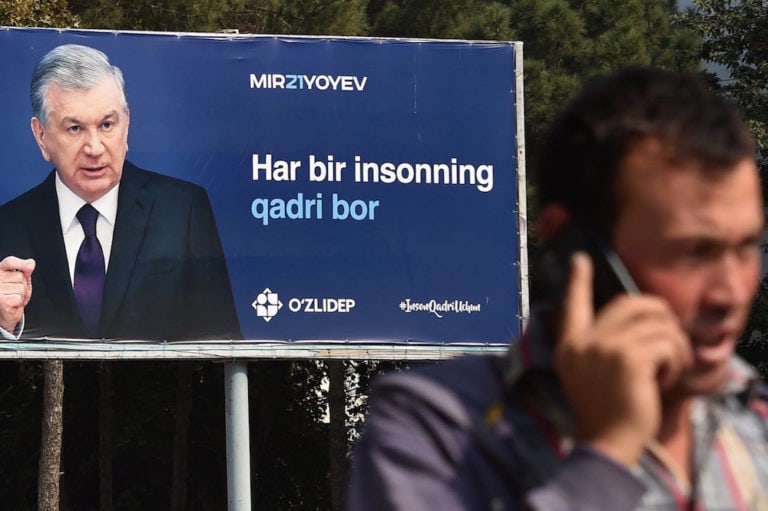(WAN/IFEX) – The following is a WAN press release: New York City, 25 November 2003 Uzbek Journalist Wins Golden Pen of Freedom Ruslan Sharipov, an imprisoned Uzbek journalist, has been awarded the 2004 Golden Pen of Freedom, the annual press freedom prize of the World Association of Newspapers, for his courageous resistance to attacks, torture […]
(WAN/IFEX) – The following is a WAN press release:
New York City, 25 November 2003
Uzbek Journalist Wins Golden Pen of Freedom
Ruslan Sharipov, an imprisoned Uzbek journalist, has been awarded the 2004 Golden Pen of Freedom, the annual press freedom prize of the World Association of Newspapers, for his courageous resistance to attacks, torture and constant harassment under President Islam Karimov’s repressive regime.
The award, which will be presented on Monday, 31 May, 2004, at the World Newspaper Congress and World Editors Forum in Istanbul, Turkey, recognises Mr Sharipov’s outstanding defence and promotion of press freedom in the face of constant physical danger, prison and censorship.
“Mr Sharipov has endured unspeakable hardships because he has refused to bow to pressure to drop his criticism of the government and to stop his human rights work,” said the Board of the Paris-based WAN, meeting in New York City. “His refusal to censor himself, even in the face of intimidation, prison and torture, is a courageous act that is an inspiration to journalists and human rights activists everywhere.”
In making the award, WAN called on President Karimov to release Mr Sharipov and other imprisoned journalists and to cease the repression of free journalism.
Mr Sharipov, founder of the Union of Independent Journalists of Uzbekistan and a correspondent for the Moscow Human Rights News Agency, was sentenced to five years in prison in August 2003 for “engaging in homosexual acts” and “engaging in sexual relations with minors”. The charges are believed to be a pretext to silence him.
In addition to founding the UIJU, Mr Sharipov has reported regularly on the state of the media and press freedom in Uzbekistan, and about human rights violations in the country.
Mr Sharipov originally denied the charges and declared that they obviously were fabricated in an attempt to silence him. But in mid-trial, he waived his right to counsel and pleaded guilty. Mr Sharipov maintains that he was physically and psychologically tortured into reversing his plea: injected with an unknown substance, forced to inhale a substance that caused respiratory problems, threatened with an injection of the HIV virus, and forced to write a suicide note.
The trial itself appears to have revealed little concrete evidence to support the charges. There was no forensic evidence showing physical contact with the alleged victims, who gave conflicting statements. His lawyer was also the victim of violence and intimidation. He was abducted and assaulted by four masked men in military uniforms who beat him and broke two of his ribs.
Strict media control has undermined press freedom in Uzbekistan for a number of years. President Karimov has sent mixed messages on his position toward press freedom: while he has urged journalists to criticise the government and expose corruption, he has also said the country is not ready for freedom of the press and expression. Although censorship was officially abolished in May 2002, numerous journalists have been fired from their jobs, assaulted, arrested, or sentenced to prison terms.
Mr Sharipov, 25, studied journalism at the University of Georgia in the United States on a scholarship he received from the Uzbek Presidential Foundation in 1999. The scholarship was withdrawn in August 2000, reportedly because the Foundation said the Uzbekistan press was unprepared for western democracy and it wanted to curb Sharipov’s international activism.
WAN, the global association of the newspaper industry, has awarded the Golden Pen annually since 1961. Past winners include Argentina’s Jacobo Timerman (1980), Russia’s Sergei Grigoryants (1989), China’s Gao Yu (1995), and Vietnam’s Doan Viet Hoat (1998). The 2003 award went to the Belarusian Association of Journalists.
WAN defends and promotes press freedom world-wide. It represents 18,000 newspapers; its membership includes 72 national newspaper associations, individual newspaper executives in 100 countries, 13 news agencies and nine regional and world-wide press groups.


